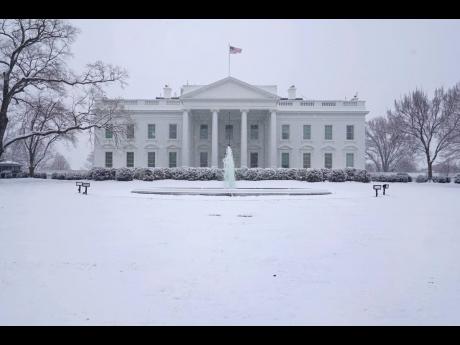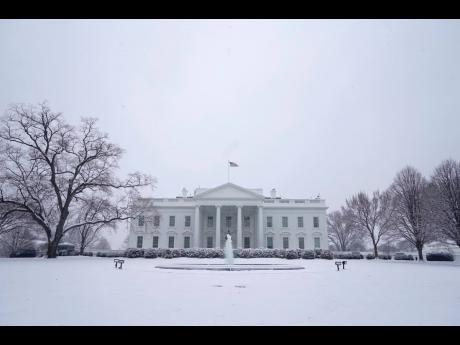Walter Molano | Dark repercussions
The last four years marked a major shift in US policies. Washington’s attacks on the climate accords, international institutions and trade were a departure from the post-war spirit of multilateralism.
Sometimes the desired outcomes were only rhetorical. For example, the US trade deficit in 2020 was larger than when President Trump took office. And, the United States-Mexico-Canada trade agreement, called the USMCA, which replaced the North American Free Trade Agreement, was mainly a change in name, rather a modification of terms.
However, the events of the past month may have a more lasting impact.
The United States has long been the beacon of democracy. Born in the era of absolute monarchy, when the world was ruled by dynasties, the nascent United States stood as a radical experiment in government. There already had been some changes in Europe with shifts towards representative forms of government.
A few years after the colonists arrived on the shores of Massachusetts, England erupted in a vicious civil war that resulted in limiting the power of the monarchy and increasing parliamentary control.
Yet, the American political experiment went much further, totally eliminating any form of monarchy, and centring its authority on a legislative body, with an executive appointed to lead the way. The system was based on checks and balances, meant to prevent over-reach and tyranny. It was also born at the start of a new form of economic organisation.
The Industrial Revolution began in the early 1700s and altered the economic landscape. While the southern part of the country was still rooted in agriculture, with landowners controlling wealth, the northern part industrialised, pushing into textiles and manufacturing. This spawned a network of middle-class capitalists.
The new democratic form of government was a hand in glove for the form of economic organisation because it gave a voice to a wider group of people in the form of political and economic power. This was the liberal blueprint that was used to transform the world for the next two centuries.
Unfortunately, the events of the last month have sent a strong signal to the rest of the world that the model may be broken. Cracks had already been visible well before the election of Donald Trump.
The fall of the Berlin Wall led to the spread of market-based policies and democratic forms of government. However, both got hijacked along the way, as operators concentrated both money and political power.
Democracy was also hard to implement in countries where the economic power was concentrated in a small group, thus leading to the emergence of authoritarian regimes. Shock therapies, used to stabilise economies, as well as global economic crises, also led to a general disenchantment with capitalism.
Suffering important changes
Soon people were looking for a more basic form of government, one which would provide order and security. In return, they would look the other way at any abuses. It was clearly what happened in Venezuela and Argentina. Institutions came under attack or fell by the wayside. Yet, all along, the United States still served as the role model of democratic behaviour.
Unfortunately, a closer look at what was happening economically in the United States would have shown that it was also suffering important changes. For years, US economists and policymakers have bemoaned the enormous concentration of wealth and the stagnation of the middle class.
This has economically disenfranchised a large part of the electorate. Even though they still have the right to vote, the form of democracy that emerged 200 years ago was one where the electorate needed to be economically invested in the political system. By marginalising a large swathe of the electorate, they no longer have an interest in defending it. This is what was shown when the white mob stormed the Capitol.
The vast concentration of wealth is the product of deregulation, de-unionisation, tax reforms, technological change and globalisation, which are all of the major economic forces that have shaped the world during the 21st century. In other words, the events of the past month may have been inevitable. Sooner or later they were going to happen. All that was needed was a spark.
Therefore, what will be the repercussions? Perhaps it is time to tweak the economic or the political system, or both? Just as the birth of political liberalism coincided with a new form of economic organisation, perhaps it is time to rethink the current system. It has already been changing. The political power wielded by major corporations and wealthy individuals have soared.
The US just had a brief experience with an autocratic leader, and a large part of the population welcomed it.
Will this become the norm across the emerging world? Will this be the justification for more Erdogans, Putins, Bolsonaros, Dutertes, Maduros and Kirchners? Unfortunately, it may be the case.
Dr Walter T. Molano is a managing partner and the head of research at BCP Securities LLC.


